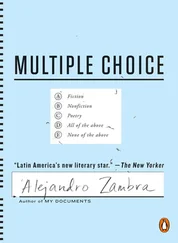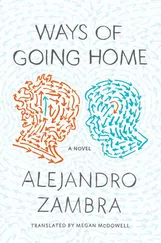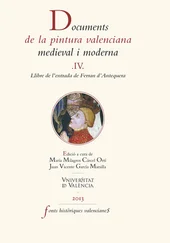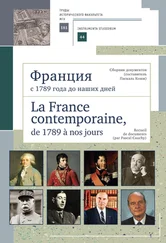“Who’s Chupete Suazo?” asks Chilean Two, who surely knows but feels obliged to demonstrate that he doesn’t care about soccer. Chilean One was going to answer him, but the Spaniard knows a lot about soccer and tells him he’s a Chilean center forward who looks fat but isn’t, who plays for the Rayados in Monterrey, and who had a successful season when he was lent to Zaragoza, but then he went back to Mexico because the Spaniards couldn’t afford him. Chilean Two replies that the same thing happens to him, that he’s actually skinny but people think he’s fat.
Chilean One and the Argentine are still sitting very close together, but they keep a prudent distance, because even though everyone knows or guesses they’re together, they still pretend they aren’t — not exactly out of modesty, more like desperation, or maybe because the time is gone when things were so simple that you could just be together or not, or maybe everything is still that simple but they haven’t accepted it, and it really is absurd that they don’t live together because they eat, read, and work together, and, of course, they sleep together — it’s almost always him who sleeps over at her place, but sometimes the Argentine stays over at the apartment the Chilean shares with the Ecuadorian girl. What the Chilean and the Argentine really want is to be alone, but the night draws itself out as they search for new, unremembered details that, once remembered, bring the Chilean and the Argentine a new sense of closeness. Finally he says he’s going to the bathroom but instead goes into the Argentine’s bedroom; she stays a little longer in the living room, and then she slips away too.
She takes a long shower and makes him take one too. To wash the kidnapping off of them, she says, referring, he assumes, to the groping she’d been subjected to, a groping that was in any case minimal, for which they are both thankful. That is, in fact, what she said to the bandits when she got out of the car: “Thank you.” She’s said it many times over the course of the night: “Thank you, thank you, everyone.” To the Spaniard who comforted them, to the Chilean who ignored them but in some way also comforted them, and to the bandits too, again, it’s never a bad idea to repeat it: “Thank you,” because you didn’t kill us and now life can go on.
She also says thank you to Chilean One, as they lie there caressing each other, knowing that tonight they won’t make love, that they will spend the hours very close, dangerously, generously close, talking. Before going to sleep she says thank you to him, and he answers a little late but with conviction: “Thank you.”
They sleep badly, but they sleep. And they go on talking the next day, as if they had their whole lives in front of them and were willing to work at love, and if someone saw them from outside — someone brash, someone who believed in these kinds of stories, someone who collected them and tried to tell them well, someone who believed in love — he would think that the two of them would be together for a very long time.
THE MOST CHILEAN MAN IN THE WORLD
In mid-2011 she received a grant from the Chilean government and set off for Leuven to start a doctoral program. He was teaching at a private high school in Santiago, but he wanted to go with her and live some version of “forever”; after talking it over, though, at the end of a sad night when they’d had very bad sex, they decided it was better to separate.
During the first months, it was hard to tell if Elisa really missed him, even though she sent him all kinds of signals that he thought he interpreted correctly: he was sure that those long e-mails and the erratic and flirtatious messages on his Facebook wall and, above all, those unforgettable afternoon-nights (afternoons for him, nights for her) of virtual sex via Skype could be interpreted only one way. The natural thing would have been to go on like that for a while and then gradually cool off, forget each other, and maybe, in the best of cases, run into each other again after some time, maybe many years later, their bodies bearing the weight of other failures, this time ready to give it their all. But an executive at Banco Santander, at the Pedro Aguirre Cerda branch, offered Rodrigo a checking account and credit card, and suddenly he found himself passing from one screen to another, checking boxes that said “yes” and “I agree,” entering the codes B4, C9, and F8, and that was how he found himself, at the start of January, without telling anyone — without telling her — on his way to Belgium.
There was no connecting thread, no constant in his thoughts during the nearly twenty-four hours he spent traveling. On the flight to Paris, he was struck by the amount of turbulence, but since he hadn’t flown much — or never any significant distance, at least — he was, in a way, grateful for the feeling of adventure. He never really felt afraid, and he even imagined himself saying — sounding so sophisticated — that the flight “had been a little rough.” He had a couple of books in his backpack, but it was the first time he’d flown on a plane with so many entertainment options, and he spent hours deciding which movies or TV series he wanted to see. In the end he didn’t watch anything in its entirety but he did play, with a degree of skill that surprised him, several rounds of some sort of Who Wants to Be a Millionaire? video game.
While he was walking through Charles de Gaulle to take the train, he had the fairly conventional thought that no, he did not want to be a millionaire, he’d never wanted to be a millionaire. And that trivial thought led him, who knows how, to a scorned and maligned word, which nevertheless now glittered, or at least shone a little, or was less dark than usual, or was dark and serious and big but didn’t embarrass him: maturity . He went on with these thoughts on the train ride from Brussels to Leuven. Inexplicably, using up almost all of the credit on his card to buy a plane ticket to Belgium to visit Elisa struck him as a sign of maturity.
And what happened in Leuven? The worst. Although sometimes the worst is the best thing that can happen. It must be said that Elisa could have been nicer, a little less cruel. But if she had been nicer, he might not have understood. She didn’t want to leave that possibility open. He called her from the station, and Elisa thought it was a joke, but she started walking toward him anyway, talking to him on the phone all the while. Then she turned a corner and saw him, a hundred steps away, but she didn’t tell him she was there and he went right on talking, sitting on his suitcase, half-numb and anxious, looking at the ground and then at the sky with a mixture of confidence and innocence that was repulsive to Elisa — she couldn’t put her feelings, her thoughts, in order, but she was sure of one thing: she didn’t want to spend the coming days with Rodrigo, not those days or any others, none. And maybe she was still a little in love, and she cared about him, and liked to talk to him, but for him to show up out of nowhere, like in some bad movie, ready to embrace and be embraced, ready to become the star, the hero who crossed the world for love: that was, for Elisa, much more of an affront and a humiliation than a cause for happiness.
As she took long strides back to her house, she felt the constant vibration of her cell phone in her pocket, but she answered only half an hour later, already in bed, duly protected: “I’m not going to pick you up,” she told him. “I don’t want to see you. I have a boyfriend [lie]. I live with him. I don’t ever want to see you ever again.” There were another nine calls, and all nine times she answered and said more or less the same thing, and in the end she told him, to add a little realism to the thing, that her boyfriend was German.
Читать дальше












